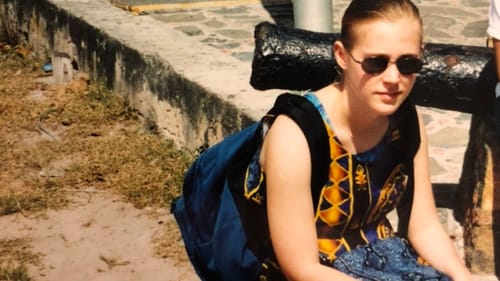Stay in the Loop
BSR publishes on a weekly schedule, with an email newsletter every Wednesday and Thursday morning. There’s no paywall, and subscribing is always free.
It’s not a phase
A nerd finally speaks: Why am I like this?

My whole life, no-one has ever singled me out as trendy or stylish—until now.
I still remember a story my college boyfriend told me. It was a small campus with a mix of dorm students like me, and hometown kids. We were at some house party, and I walked away to get a drink. There were some town girls there, friends of my boyfriend, who had stopped speaking much to him since we started dating. They always stuck together. One walked up to my boyfriend while I was in the kitchen.
According to him, she asked, without any preamble, “Are you still dating that girl?” He said he was. And she wheeled around and went back to ignoring him. Me, they had ignored all along.
The outer circle
It was nothing new to me. In junior high, I remember the week some of the girls decided to start a secret club. I have no idea what the purpose of the club was, beyond the possession of a small hand-written card that said “Alaina Johns is a member of S.E.,” decorated with hearts. “S.E.” stood for “Secret 11,” the number of girls in the club.
Several years later, I was lolling around with an old classmate in her childhood bedroom. It looked like she had recently embarked on a futile quest to clean out some drawers, and somehow, in the grade-school detritus, I caught sight of a hand-drawn card that looked just like the one I had had, with my friend’s name on it—but the number wasn’t “11.” It was a much smaller number.
Clearly, I had been far from the inner circle. And to this day, I’m impressed with the subterfuge involved, right down to handmade cards for the less popular girls, so we wouldn’t suspect what we were missing.

High school and beyond
Somehow, my penchant for wearing blue Doc Martens with shorts, earning a top GPA, owning plastic butterfly hair clips, and having what someone warned me were too many opinions for a girl did not make me any cooler in high school than I had been in junior high.
I can still remember the face of a wealthy, popular girl in my senior-year English class when the teacher paired her with me for a school project. She looked like she had just swallowed pond water.
The trendy editor
So it brings me up short when people complain that my goals as editor for Broad Street Review are merely for the sake of trendy political correctness, or because I’m concerned about what’s in vogue.
It’s definitely the first time anyone accused me of being fashionable.
What is drawing the acerbic comments and e-mails insulting me, telling me I’ve made a big mistake, or declaring that I’m ruining BSR? Part of it is a commitment I’ve made, along with BSR’s staffers and writers, to focus on inclusive language and an inclusive lens for our coverage. That might mean new or unfamiliar phrases that properly center the identities and experiences of marginalized people. And it means reviews, features, and essays that interrogate issues of representation and accessibility in the arts, on topics like gender, race, disability, and more—including my own failings.

Here to stay
I expect that this will make some people confused or angry, especially folks who’ve never had to think much about these questions before, or who are used to automatically seeing people like them as a defining standard of culture. I know it’ll always be impossible to please everyone.
But what’s hard to stomach is the folks who claim that BSR’s goal is to surf a temporary trend of hip political correctness. As if hardworking BSR staff and writers have taken a facile road to score “woke” points. As if this work isn’t rooted in a real need to address systemic injustice through the language we use. As if this work is easy, when it actually takes long hours of thinking, listening, researching, planning, writing, and editing—and then after all that, to hear (for example) that I’m a “twit” or that BSR is no longer worth reading.
I’ve been a professional lady writer for more than a decade. That means I can handle whatever personal insults folks want to cook up (and you’re certainly creative!). What I can’t handle is this notion that inclusive arts coverage is a worthless fad.
True to our mission
Because guess what? BSR is continuing to grow. We’re attracting new readers and writers. We’re continuing to promote the kind of dialogues that our audience has enjoyed for years (now is actually a great time to check out our updated comment policy). We’re helping start new conversations all around the city. And while we invent our future, we’re actually staying true to BSR’s roots as a place for strong, original voices, searching for a place to be heard.
When I was a youngster, I dreamed about what it would be like to be one of the stylish, popular kids. But as an adult, I have a different vision. What about a world that doesn’t elevate some people and exclude others? Let’s get to work.
Sign up for our newsletter
All of the week's new articles, all in one place. Sign up for the free weekly BSR newsletters, and don't miss a conversation.
 Alaina Johns
Alaina Johns